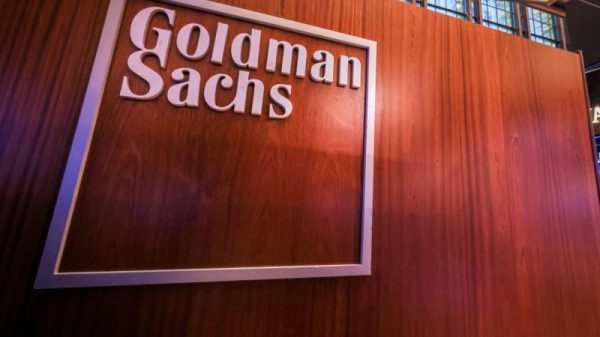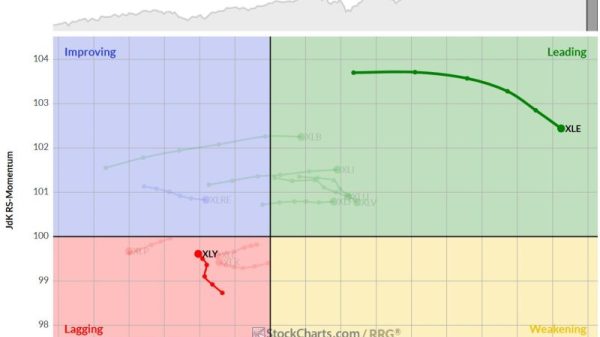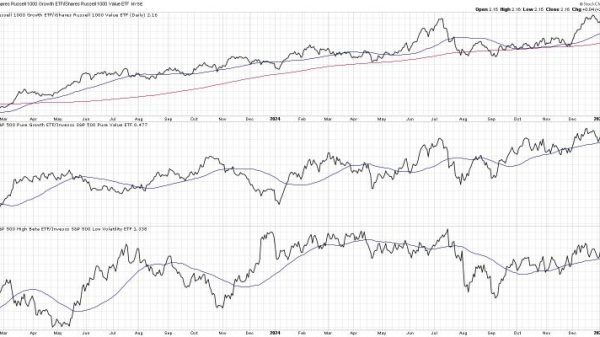It is not because of Donald Trump that the Republican Party is associated with the color red (for that you can largely thank George W. Bush and the state of Florida), but few Republicans have embraced the color as enthusiastically as have Trump and his followers. Trump’s branding skills might be overstated, but he has made red baseball caps an unusually potent political signifier.
To someone of a certain age — like, say, 78 — red was at one point associated more firmly with the Soviet Union and communism more broadly. (That it aligned with the GOP only after the fall of the U.S.S.R. is probably not a coincidence.) A “red” was someone believed to hold views antithetical to the United States, someone to be uprooted from 1950s society and government.
It’s interesting, then, to see Trump lean into the idea that the nation faces a new communist threat — one that even his supporters aren’t convinced exists.
On Monday afternoon, hours before the Democratic convention kicked off in Chicago, Trump — in his inimitable fashion — presented a sweeping argument against the left.
After President Joe Biden withdrew from the race and endorsed Vice President Kamala Harris, he wrote on his social media platform that he has to beat “a Radical Left Marxist, Comrade Kamala Harris.” He added that “the good news is that she should be easier … to beat than Crooked Joe in that the USA will never allow itself to become a Communist Country.”
This is hardly the first time he’s made such a claim. In 2016, he regularly disparaged Sen. Bernie Sanders (I-Vt.) as a communist. During the 2020 election, he took to describing the left and Biden as advocates of socialism or Marxism or communism, or all of them. There wasn’t much differentiation; each was a term of disparagement understood as such, in particular by Americans who lived through the Cold War.
Something interesting happened in 2020, in fact. Usually, search interest in “communism” follows a regular pattern, dropping in the summer and rising through the fall before peaking in the spring. There’s an obvious explanation for this: Communism generally comes up as a topic of conversation in school.
The year of the coronavirus pandemic, there was an anomaly: Searches for “communism” remained relatively high through the summer. This was certainly in part because restrictions on activity aimed at limiting the spread of the virus were compared to the heavy-handed tactics of communist regimes. It’s probably also related to the virus’s point of origin. Use of the term “Chinese Communist Party” to refer to China’s government surged in the wake of the pandemic.
Trump’s campaign was deliberate about highlighting the idea that Democrats endorsed communism in part because of whom the campaign was targeting that November. The Republican convention featured a Cuban-born immigrant warning about the risk of America collapsing into a communist system like the one he’d escaped. On Election Day, Trump beat expectations in South Florida, home to many Cuban American expats who were the target of that message.
By late 2023, though, it was clear that Americans weren’t really worried about the idea that the country was on the brink of collapsing into a communist dictatorship. YouGov asked Americans specifically about the likelihood of such a shift in the next 10 years. A surprisingly large percentage of people said it was likely, but most people described such a change as not very likely or not likely at all.
The group most likely to say it could happen was Republicans. But only a quarter of Trump’s party indicated that this was somewhat or very likely. And this was nearly three years into Biden’s presidency.
Again, it’s very unlikely that Trump is arguing that Harris, if elected, would establish communes in which people would collectively own systems of production. He’s instead raising the specter of left-wing authoritarianism — explicitly as a response to the left’s suggestions that he would seek to establish a right-wing authoritarian state. (“THE DEMOCRATS ARE, ‘A THREAT TO DEMOCRACY?’” his social media post concluded in his idiosyncratic style.) Trump, of course, has repeatedly embraced other right-wing authoritarians and actively endorsed erosions of liberal democracy, making the rejoinder more than a little specious.
It’s been noted that Trump is largely a product of the 1980s, and that holds true here. In 1984, about the worst thing you could call someone was a communist. In 2024, that’s about the worst thing Trump can gin up, too.


































